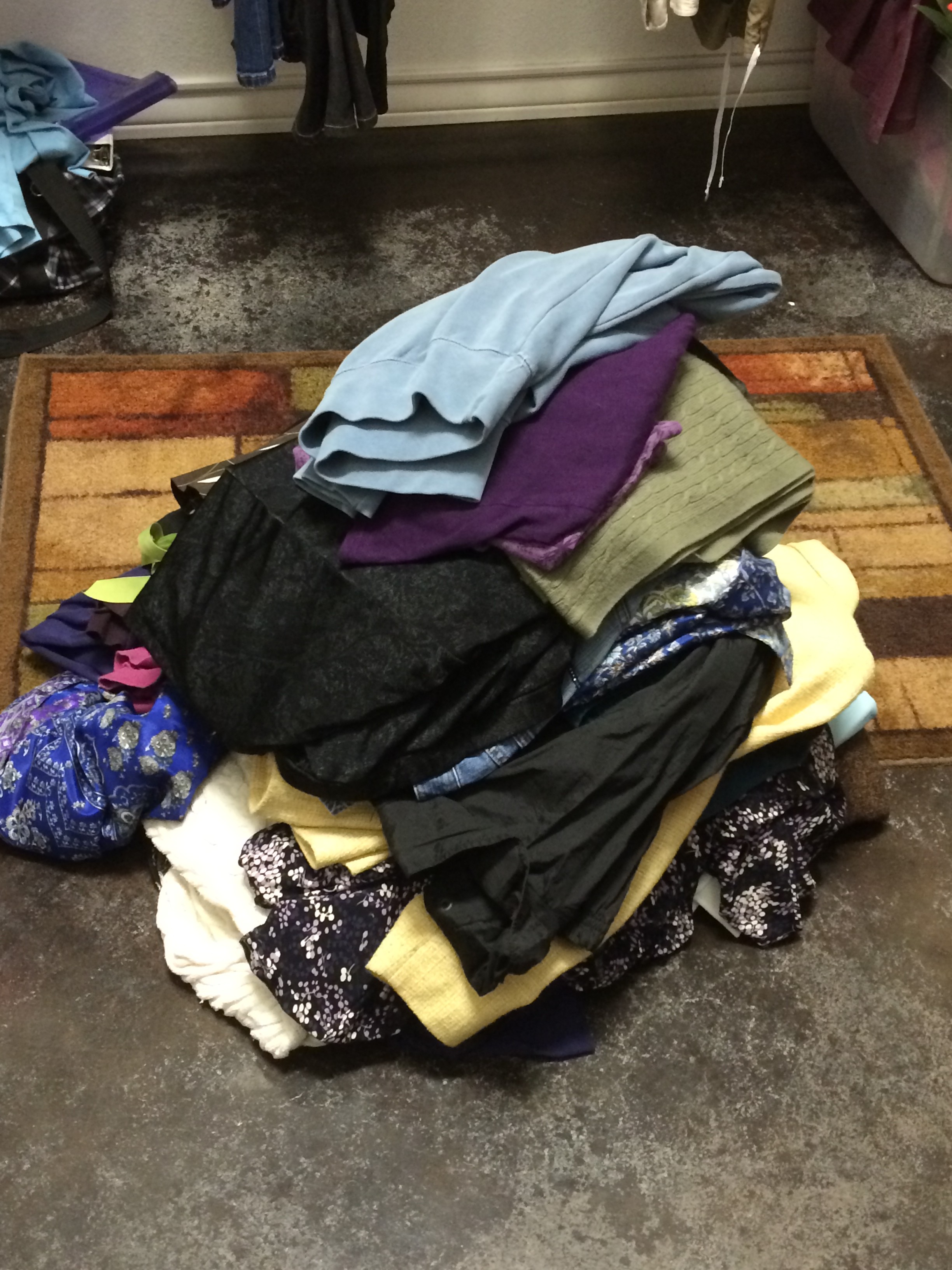Making Room
/Cyndi worked on her closet this week. The reason I know what she did is because she has a pile of clothes in the middle of the floor two feet high and three feet in diameter. And the reason I know about the pile on her closet floor (we have separate closets, one of my three requests when we built this house (the other two requests: no lawn to mow, and a library)) is because walking through her closet is the most direct route to the laundry room and I had to negotiate my way around the pile without dropping a basket full of clothes and adding to her pile.
 Thinning the volume of clothes in your closet is not a simple task. As for me, I convince myself I’ll wear it or use it someday, and before I realize what’s happened its two years later and nothing has changed. Except now I’ve accumulated two more years of stuff.
Thinning the volume of clothes in your closet is not a simple task. As for me, I convince myself I’ll wear it or use it someday, and before I realize what’s happened its two years later and nothing has changed. Except now I’ve accumulated two more years of stuff.
Cleaning, like Cyndi was doing, with the intent to discard, is one of those projects that’s hard to start but gains momentum. As you proceed, as the pile grows, the air gets cleaner and your spirit gets lighter. It’s liberating, whether clothes from the closet or trinkets from a desk drawer or old Christmas decorations or even unfinished projects form the garage.
And so, as I contemplated a Cyndi-like exercise of my own, I listened to a podcast that spoke to my piles of stuff, an interview with British author Penelope Lively, from NPR Fresh Air. Ms. Lively is 81 years old, and she recently published a memoir titled Dancing Fish and Ammonites, which she describes as “the view from old age.” She wrote that she’s no longer acquisitive, but now tries to reduce her possessions. She doesn’t want more stuff.
The interviewer, Terry Gross, asked Penelope Lively about all the books she owns and what does she do with them. Gross said, in her own house books were stacked everywhere, on tables, on the floor, on couches, and she complained, “It’s way too much.” She wondered what Lively did with her own lifetime accumulation of thousands of books and why she kept them knowing she wouldn’t reread or refer to most of them.
Lively gave a great answer: “They chart my life. They chart everything I’ve been interested in and thought about for the whole of my reading life. They identify me.”
Listening to her describe her relationship with books helped me understand why it is easy to clean out some places but hard to clean others. Some of that clutter defines us, charts the path of our hobbies and activities and interests.
So as I follow Cyndi’s lead and start my own Spring Cleaning project I have another tool for deciding what to keep. Does it say something about me, is it tied to memories, does it have a story, is it part of my timeline? If so, I’ll keep it a bit longer.
I should add, this isn’t just about being neat. While I would say I am neater than average (doesn’t everyone say that?) I don’t live my life straightening up. I have piles everywhere, and I often use my piles as physical to-do lists.
No, my desire to clean out and reduce has more to do with creating margin so we have space for whatever God brings next. I think we often have to make room for the next thing before we learn what the next thing is, and I want to be ready.
“I run in the path of Your commands, for You have set my heart free.” Psalm 119:32
You can find more of my writing at www.berrysimpson.com, or www.twitter.com/berrysimpson, or http://www.facebook.com/berry.simpson






